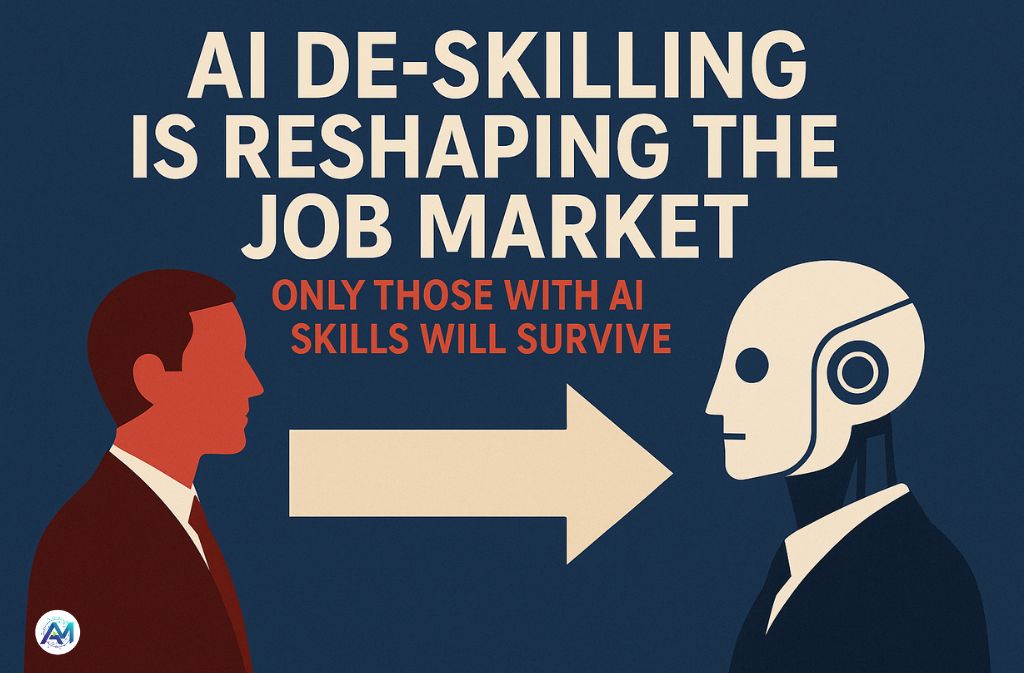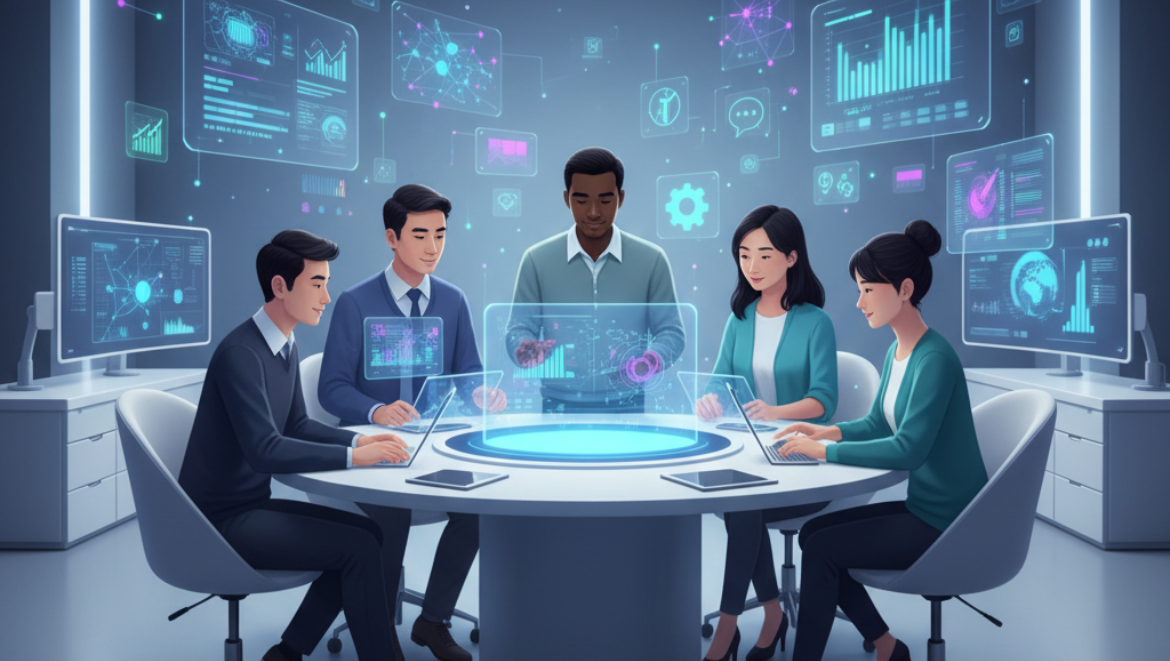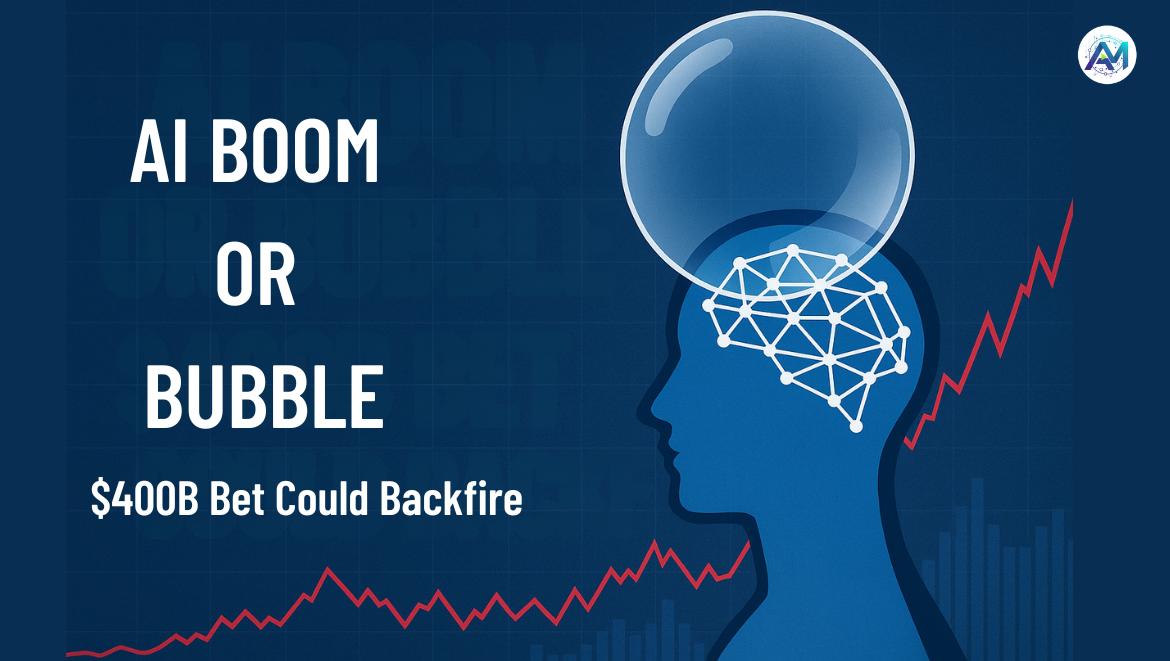Welcome to 2025 — where job titles are staying the same, but the people doing them aren’t.
The age of automation panic is over. What we’re seeing now is something sharper: AI stratification — a split between those who can command machines, and those being quietly replaced by them.
The numbers tell the story brutally. Workers who use AI tools in their daily routines earn up to 40% more than those who don’t. For Gen Z professionals, the gap hits nearly 47%, according to a Nexford University survey. That’s not a bonus — that’s a structural shift in who holds economic power.
Artificial intelligence has officially become the new class divide.
Not Robots Taking Jobs — Humans Using Robots to Take Yours
When Rishi Sunak said that “AI isn’t taking your job — someone using AI is,” it sounded like political rhetoric.
Turns out, it was a warning label for the modern economy.
Across sectors — marketing, law, journalism, finance — tasks that once required junior staff are now handled by generative AI tools. Drafting reports, summarizing data, writing code, building decks — all of it, instantly automated.
The traditional entry-level ladder — the place where workers learned through repetition — has collapsed.
New hires are expected to be AI-proficient from day one. The “training phase” of work has been deleted.
Companies aren’t hiring cheaper workers — they’re hiring augmented ones. Those who know how to prompt, verify, and edit faster than the algorithm itself.
The De-Skilling Crisis No One Wants to Talk About
Productivity is up. But mastery is down. This phenomenon, sometimes called AI de-skilling.
As Forbes columnist Joe McKendrick warns, automation is driving a quiet epidemic of de-skilling — where humans gradually forget how to perform the very work they’ve outsourced to machines. It’s the professional equivalent of muscle atrophy.
A generation of designers can now produce instant visuals — but can’t explain the composition.
Analysts can summarize data — but can’t verify its source.
Writers can draft 1,000 words — but can’t articulate an argument without an AI crutch.
We’re producing faster workers, not smarter ones.
Efficiency has become a substitute for expertise.
The New Meritocracy Is Mechanical
The hiring market is mutating in real time. Job listings across LinkedIn, Indeed, and Glassdoor now include “AI tool proficiency” — not as a bonus skill, but a baseline expectation. In the U.S., postings requiring AI literacy have jumped more than 250% in the past 18 months, according to Axios labor data.
This has created a two-speed economy:
AI-literate professionals who collaborate with machines — and capture the gains.
Non-adopters who find their output (and salaries) lagging behind automated peers.
And the brutal truth? AI doesn’t “level the playing field.” It tilts it further.
Those with education, access, and bandwidth to adopt new tools pull ahead — leaving millions of lower-income workers stranded on the wrong side of the algorithm.
Governments Are Reacting — But Slowly
The UK’s policy response, as Sunak outlined this month, acknowledges the obvious: the “AI wave” is not coming — it’s already here. He urged massive investment in AI upskilling programs to prevent an “economic hollowing” of the middle class.
But education systems are still decades behind the market. Students are learning to code while the world has already moved on to prompting.
Meanwhile, corporations are racing ahead — automating legal research, customer service, translation, even hiring decisions. Every time a worker learns a new tool, the tool itself learns to replace part of their job.
The Illusion of Empowerment
AI feels empowering — until you realize it’s also making you replaceable.
Every prompt, every click, every auto-complete teaches the model to do more of your work tomorrow. The paradox is chilling: the better you get at using AI, the easier it becomes for AI to operate without you.
That’s not science fiction. It’s a feedback loop already visible in creative and clerical industries. The same AI copilots designed to assist professionals are training themselves to imitate them.
What Still Belongs to Us
Yet not everything can be automated. The last human advantage isn’t speed — it’s discernment.
Critical thinking, taste, empathy, ethics — these are the currencies machines can’t counterfeit.
AI can write a report, but it can’t decide what matters. It can generate 50 designs, but it can’t choose which one tells a story.
The future of work won’t belong to the fastest typist or the best coder — it’ll belong to the person who knows when to stop trusting the machine.
The Hard Truth
AI is no longer a productivity tool. It’s an economic sorting mechanism — dividing those who adapt from those who don’t.
And here’s the uncomfortable part: this isn’t about robots “stealing” jobs. It’s about humans using robots to outperform, underbid, and outlast other humans.
The world’s next inequality crisis won’t be about wealth. It’ll be about competence.
The question isn’t will AI take your job?
It’s how long before someone who understands it better does?
Visit: AIMetrix



